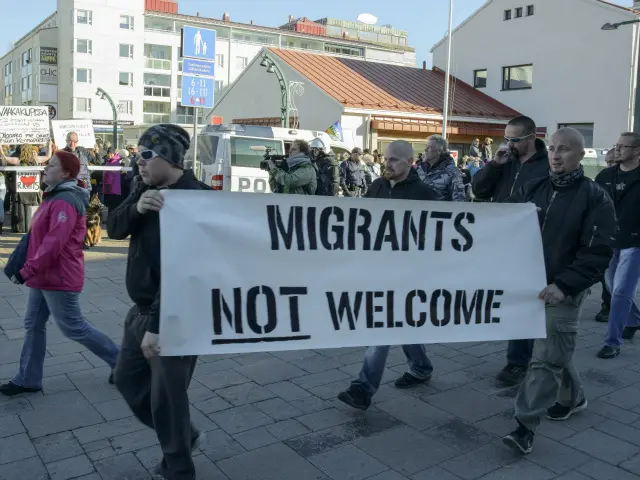While demonstrators gathered in Cologne, Germany, on Sunday to protest against assaults allegedly done by asylum seekers, there have been question marks over media reports about similar sexual harassment that took place in Helsinki, Finland.
On New Year's Eve, a group of some 1,000 men have surrounded, harassed and robbed, especially women in Cologne. So far, German police have identified a total of 31 suspects, most of whom were asylum seekers.
However, in Finland, the Finnish police have made conflicting statements about what really happened in Helsinki.
Helsinki Police Commissioner Lasse Aapio told national broadcaster Yle on Sunday that a pattern of a large group of people acting in the same way and targeting minors is new.
But he said the information about alleged sexual harassment at the massive New Year's event in Helsinki was mainly from second hand sources such as security guards and the police had merely published it.
The Finnish Central Criminal Police, or the National Bureau of Investigation, has dismissed the claims. It said six asylum seekres were detained near Helsinki before New Year's event as a protective measure for risk of instigating crime. The would-be crime was not specified. The men were later released albeit the investigation was not suspended.
In an interview with British newspaper The Telegraph, Helsinki Police deputy commander Ilkka Koskimaki said the policemen having tip-offs from reception centres were prepared for fights, sexual harassment and thefts, and managed to control the estimated 1,000 Iraqi asylum seekers gathering in tunnels at the central railway station on New Year's Eve.
Describing the action as a new phenomenon "in Finnish sexual crime history", Koskimaki also said that sexual assaults in parks and on the streets had been unknown in Finland before the influx of asylum seekers in 2015.
His remarks made international headlines, but received criticism back at home. Critics asked why Koskimaki emphasized the asylum seekers so strongly as sexual harassment of women has taken place in Finland all the time, even before the current wave of asylum seekers arrived.
Former Finnish President Tarja Halonen said over the weekend in a TV interview that "peace around women" has been a Finnish rule dating back to medieval times. Social experts said earlier immigrants from countries where the role of women is different than in Finland may have problems in adapting to Finnish conditions.
No detailed reports or photos could be found in Finnish media concerning the alleged New Year's Eve happenings, although a number of sexual harassment cases elsewhere in Finland involving asylum seekers were reported earlier last autumn. The cases triggered both anti-immigration and pro-immigration demonstrations.
What have been also in the spotlight are the controversial volunteered street patrols organized by citizens.
Interior Minister Petri Orpo underlined that enforcement of public safety belongs to the authorities only, but Justice Minister Jari Lindstrom said these groups would be acceptable if they followed the law.
The police had initially seen some positive aspects in such activities, but quickly modified its statements later. Analysts believed the police have been influenced by different political parties on the issue. Enditem
 简体中文
简体中文

